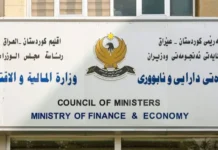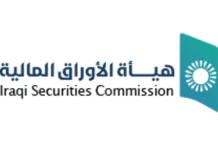Good Morning ,
ARIZONA LEADS CRYPTO RESERVE LEGISLATION RACE AS SB 1373 PASSES HOUSE COMMITTEE
▪️The Arizona Strategic Digital Assets Reserve Bill passed the House committee on Thursday.
▪️The bill, which calls for the creation of a strategic reserve, now awaits a final reading and full floor vote before reaching the governor’s desk for approval.
Arizona’s Strategic Digital Assets Reserve Bill, or “SB 1373,” passed the House committee on Thursday. It now awaits a third reading and a full floor vote before reaching the governor’s desk for final approval.
The SB 1373 bill proposes the creation of a digital assets strategic reserve fund, which would consist of funds appropriated by the legislature and crypto assets seized by authorities.
The bill notes that the state treasurer would be allowed to deposit seized crypto into the fund via a qualified custody solution or a state-registered exchange-traded product, and that the treasurer may loan digital assets from the fund for additional returns.
“The state treasurer may not invest more than ten percent of the total amount of monies deposited in the fund in any given fiscal year,“ the bill says.
According to SB 1373, the term “digital assets” include virtual currency, virtual coin, and cryptocurrencies, which encompass bitcoin, stablecoins, non-fungible tokens, and other blockchain-based assets that carry economic or access rights.
A separate bill — the Arizona Strategic Bitcoin Reserve Act (SB 1025) — also passed the House on April 1. If enacted, SB 1025 would allow state funds to invest up to 10% in “virtual currency holdings.”
However, Arizona’s crypto reserve bills may face a significant roadblock in the legislative progress as Governor Katie Hobbs vowed to veto all bills until the legislature passes a disability funding measure.
Several other U.S. states are currently advancing crypto-related legislation. According to data from bitcoin legislation researcher Bitcoin Laws, Arizona has made the furthest progress in passing the digital asset reserve legislation, followed by Texas and New Hampshire.
@ Newshounds News™
Source: The Block
~~~~~~~~~
RUSSIA MULLS LOCAL STABLECOIN ISSUANCE TO CIRCUMVENT SANCTIONS
A Deputy Director at the Russian Finance Ministry, Osman Kabaloev, has floated the idea of Russia launching a stablecoin to help with import and export payments. Over the last three years, Russia has tried numerous routes to circumvent sanctions given its access to Swift for cross border payments is blocked.
A current popular route is the use of stablecoins, and Tether in particular. However, in early March, Tether froze $28.5 million in funds belonging to sanctioned Russian crypto exchange Garantex, causing it to suspend services.
“That blocking that recently happened… makes us think that we need to look at creating internal instruments like USDT, possibly tied to other currencies, like they do in the Emirates – a stablecoin for the dirham – and in many other countries,” Kabaloev said at a conference of the Association of Russian Banks, according to Reuters. He was referring to the recent launch of the AE Coin, a dirham stablecoin authorized by the Central Bank of the UAE. Notably, the dirham is pegged to the dollar.
This isn’t the first report about Russian stablecoins. Last August there were reports of plans to issue a stablecoin in the Chinese yuan as well as a BRICS basket. It’s unclear whether China’s government would support a yuan stablecoin or would prefer the use of its CBDC.
The yuan is relevant because a significant proportion of Russia’s cross border payments have now shifted to the Chinese currency.
Tokenization & crypto for cross border payments
Russia already has two experimental programs that can be used for cross border payments. It has digital financial asset (DFA) issuance, its regulated tokenization regime that was launched before the Ukraine invasion. This supports assets such as tokenized gold or oil, and Iran said it was working with Russia on using tokenized assets for payments.
DFAs were originally intended for domestic investments, but a year ago Russia passed a law allowing DFAs to be used for cross border payments. Around the same time, local ratings agency ACRA highlighted frictions for foreign DFA holders because they’d have to onboard with Russian banks.
Russia’s central bank is not a big fan of cryptocurrencies, and initially resisted their use for cross border payments. However, late last year a new experimental program was launched to support the use of cryptocurrencies for imports and exports.
Mr Kabav also mentioned proposals the Central Bank subloemitted for crypto trading.
On the payments front he said, “Pilot transactions were conducted at the end of December, and now the mechanism is gaining momentum. Therefore, we hope that we will only strengthen and expand this area.”
At the same time Russia is working on a digital ruble central bank digital currency (CBDC), and there’s been much talk of a BRICS Bridge. That’s a planned cross border CBDC payment system for local currency payments amongst the ten BRICS member states.
@ Newshounds News™
Source: Ledger Insights
~~~~~~~~~
RUSSIAN SENATOR ANTICIPATES CREATION OF BRICS+, DOZENS OF NATIONS POTENTIALLY INVOLVED
Deputy Speaker of the Federation Council Konstantin Kosachev revealed that several countries are set to join the BRICS+ initiative, aiming to include the maximum number of participants. The Russian senator emphasized that this geopolitical group would facilitate direct interaction with dozens of countries outside the bloc.
Deputy Speaker of the Federation Council Konstantin Kosachev revealed that several countries are set to join the BRICS+ initiative, aiming to include the maximum number of participants. The Russian senator emphasized that this geopolitical group would facilitate direct interaction with dozens of countries outside the bloc.
Russian Senator Reveals Future Creation of BRICS+ Geopolitical Group
The BRICS alternative bloc, composed of Brazil, Russia, India, China, South Africa, Egypt, Ethiopia, Indonesia, Iran, and the United Arab Emirates, is now seeking to expand its reach and influence to other countries through BRICS+.
Konstantin Kosachev, a Russian Senator of the Federation Council, said the bloc will deploy this new initiative to put dozens of allied countries in direct contact with the organization.
Kosachev stated:
This will not be a closed association for BRICS countries and partners, but rather a broader platform aimed at including the maximum number of participants.
The Russian Senator noted that several nations, including China, Iran, the United Arab Emirates, Ethiopia, South Africa, and Brazil, the current president of BRICS, had expressed their support for the BRICS+ initiative. “Several other countries are still considering their positions, but in this case, as within the entire association, we do not impose our will or attempt to enforce a single discipline,” he clarified.
The idea would be discussed during the next Parliamentary Forum in June, where representatives of the member states and allied nations will be present. “We hope to reach some decisions to formalize this initiative on the platform of the Inter-Parliamentary Union during the autumn assembly,” Kosachev concluded.
The news hints at a new level of cooperation between the BRICS bloc and its allies centered in the BRICS+ initiative, which could be used to coordinate binding economic and governance policies seeking to strengthen the group’s position in the face of the current financial turmoil and market uncertainty.
Per Russian Foreign Minister Sergey Lavrov’s statements, these measures could include adopting a common payment system, which will also be available for countries outside the group.
@ Newshounds News™
Source: Bitcoin News
~~~~~~~~~
Seeds of Wisdom Team RV Currency Facts Youtube and Rumble
Newshound’s News Telegram Room Link
Q & A Classroom Link
Follow the Roadmap
Follow the Timeline
Seeds of Wisdom Team™ Website





